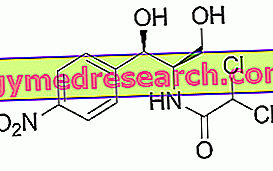Definition and Symptoms

However you call it, the dry mouth is an unpleasant condition caused by a lack of saliva . This deficiency can alter the perception of the normal taste of food, make speech difficult and predispose to dental caries. In fact, saliva is able to buffer the acidity of the mouth and contains some substances with an antimicrobial action.
The dry mouth can also make swallowing difficult, while the digestive processes do not suffer particular negative consequences (the lack of intervention of the salivary amylase is largely compensated by the pancreatic one). In addition to dryness of the oral mucosae, the patient may complain of sore throat, chapped lips, continuous thirst, difficulty speaking, halitosis, gum disease and fungal infections of the mouth (see oral candidiasis or thrush).
Causes
Diet
Having a dry mouth from time to time is a completely normal phenomenon, often the result of a slight dehydration caused by too much sweat, by the scarce supply of liquids or by the excessive ingestion of alcohol or salted foods. Recall that in normal conditions the salivary glands produce and produce about a liter / a liter and a half of saliva a day.
drugs
In addition to food, the dry mouth can have iatrogenic origins, linked to the intake of certain medicines.
The list of offending drugs is quite long and includes in particular the pharmaceutical products used for the treatment of depression, anxiety, Parkinson's disease, obesity (sibutramine, fendimetrazine, amphetamine derivatives), urinary incontinence and cancer (chemotherapy), but also narcotics, antihistamines - decongestants, antihypertensives (diuretics), antidiarrheal and muscle relaxants.
Smoke and Narcotics
Tobacco (smoked or chewed), physical exercise performed by breathing with the mouth and speaking or singing too long, can aggravate the sensation of a dry mouth.
In others, cases of drying can be caused by drug abuse, such as marijuana, cocaine, ephedrine and amphetamines, or alcohol (which has a dehydrating effect on the body).
Diseases and Disorders
A nasal obstruction (deviations of the septum, allergic rhinitis, nasal polyposis, etc.), which forces the patient to breathe through his mouth, can make him parched like the conditions listed above.
Among the diseases responsible for dry mouth, Sjogrens syndrome stands out, followed by common diabetes and insipid diabetes, mumps (mumps), cystic fibrosis and psychological disorders (depression and anxiety); the sensation of dry mouth can also be perceived by patients suffering from Parkinson's disease or who have suffered a heart attack.
When the dry mouth is accompanied by excessive sweating and marked thinness it can be a sign of a thyroid disease called hyperthyroidism.
The dry mouth can also be caused by the lesion of the salivary glands, for example due to head trauma, surgery or radiotherapy located on the neck and head (in which case the lesion may be irreversible).
To learn more: Dry Mouth: Causes and Symptoms »
Diagnosis
For the diagnosis of xerostomia the doctor or dentist carefully examines the patient's medical history and the symptoms he complains about; a careful inspection of the oral cavity and palpation of the neck and cheeks - possibly associated with blood tests or imaging techniques (imaging) - may eventually help him identify the origins of the problem. At home, the dry mouth can be "diagnosed" by ingesting crackers or dry rice: if you have difficulty chewing or swallowing the test is considered "positive".
Treatment
The treatment of xerostomia is personalized in relation to the causes of origin. For example, the doctor may decide to suspend certain medicines and replace them with others. Oral rinses with special mouthwashes, application of artificial humectants in spray (Xerotin, Secriva), able to mimic the effect of saliva (useful above all before meals) and the adoption of other palliative measures deemed secretive-stimulating (chewingum or confetti, strictly without sugar), represent a generalized intervention strategy. The patient, for his part, must maintain an adequate oral hygiene and correct any so-called flawed habits, abolishing smoking, trying to breathe through the nose rather than through the mouth, increasing the intake of liquids and humidifying the environments in which he stays.
When the salivary glands are healthy, the treatment of the dry mouth can make use of special scialagogeno drugs, such as anetoltritione (Sulfarlem) and pilocarpine (Salagen), which increase the flow of saliva.



